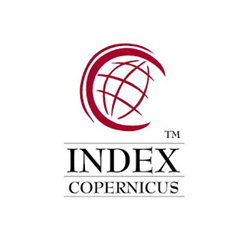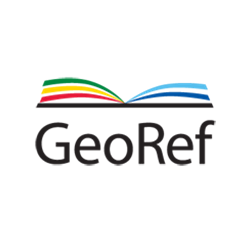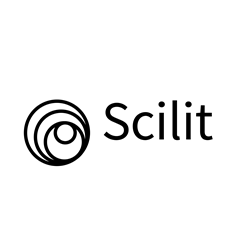Filosofía de la ingeniería: Una disciplina profesional en construcción
Palabras clave:
Ciencia, Tecnología, Ingeniería, Filosofía de la Ciencia, Filosofía de la Tecnología, Filosofía de la Ingeniería, Comunidad Académica, Ontología, Epistemología, Ética.Resumen
Mientras que la ciencia y la tecnología han estimulado investigaciones filosóficas en sus propios campos, una reflexión de esta naturaleza es poco común en la ingeniería. En la actualidad, la filosofía de la ciencia y la de la tecnología son disciplinas profesionales perfectamente establecidas. Este trabajo pretende mostrar que la Filosofía de la Ingeniería es un campo en construcción que cumple las condiciones para ser una disciplina filosófica profesional: comunidad académica, agenda de investigación y órganos de difusión. Para ello, realizamos una exploración bibliográfica descriptiva que nos permita identificar los momentos constituidores de la disciplina, ubicándolos en una línea de tiempo entre 1998 y 2014. Este trabajo consta de dos partes. La primera presenta el “giro empírico” en la filosofía de la tecnología como evento fundacional de la filosofía de la ingeniería; la segunda, la serie de eventos que, como consecuencia del “giro empírico”, constituyen propiamente la disciplina en el tiempo.
Descargas
Citas
[2] P. Durbin, Critical Perspectives on Nonacademic Science and Engineering. Bethlehem, PA.: Lehigh University Press, 1991.
[3] P. Durbin, “Philosophy of Technology”, Techné: Research in Philosophy and Technology, vol. 10, n° 2, pp. 1-131, 2007.
[4] D. Idhe, “Philosophy of Technology, 1975-1995”, Philosophy & Technology, vol. 1, n° 1-2, pp. 1-8, 1995.
[5] J. K. B Olsen, S. A. Pedersen, and V. F. Hendricks. A Companion to the Philosophy of Technology. Blackwell Publishing, 2009.
[6] G. Sinclair, “A Call for a Philosophy of Engineering”, Technology and Culture, vol. 18, n° 4, pp. 685-689, 1977.
[7] A. Donovan, “Thinking about Engineering,” Technology and Culture, vol. 27, n° 4, pp. 674-679, 1986.
[8] I. van de Poel, “Philosophy and Engineering: Setting the Stage,” in Philosophy and Engineering. An Emerging Agenda. Dordrecht: Springer, 2010, pp. 1-11.
[9] L. Bucciarelli, Engineering Philosophy. Delft, The Netherlands: Delft University Press, 2003, p. 2.
[10] P. Kroes and A. Meijers, The Empirical Turn in the Philosophy of Technology. Amsterdam: Elsevier, 2000.
[11] M. Heidegger, The Question Concerning Technology and OtherEssays. New York: Harper & Row, 1977.
[12] M. Heidegger, Filosofía, Ciencia y Técnica. Santiago de Chile: Editorial Universitaria, 1997.
[13] C. Mitcham, Thinking through Technology. The Path between Engineeringand Philosophy. Chicago: University of Chicago Press,1994.
[14] J. Pitt, Thinking about Technology: Foundation of Philosophy of Technology. Nesw York: Seven Bridges Press, 1999.
[15] C. Mitcham, Thinking through Technology. The Path between Engineering and Philosophy. Chicago: University of Chicago Press, 1994.
[16] G. Sinclair, “A Call for a Philosophy of Engineering,” Technology and Culture, vol. 18, n° 4, pp. 685-689, 1977.
[17] C. Mitcham, “La Importancia de la Filosofía para la Ingeniería,” in J. A. López Cerezo, et al. (ed.), Filosofía de la Tecnología, Madrid: Teorema. Revista Internacional de Filosofía y OEI, 2001, pp. 31-53.
[18] S. Goldman, “Why we need a philosophy of engineering: a workin progress”, Interdisciplinary Science Reviews, vol. 29, n° 2, pp. 163-176, 2004.
[19] I. van de Poel and D. Goldberg (workshop co-chairs), “Abstracts of the Workshop Philosophy & Engineering”, in Workshop Philosophy & Engineering 2007, Delft, The Netherlands, 2007.
[20] D. E. Goldberg and N. MacCarthy (workshop co-chairs), “Abstracts of the Workshop on Philosophy & Engineering”, in Workshop on Philosophy & Engineering, WPE2008, London, 2008.
[21] K. Friedrich, “Conference Report”, in Society for Philosophy and Technology (SPT) 2009: “Converging Technology, Changing Societies”, Enschede, The Netherlands, 2009.
[22] D. E. Goldberg and D. P. Michelfelder , “Abstracts of the 2010 Forum on Philosophy, Engineering & Technology”, in fPET 2010 Forum on Philosophy, Engineering & Technology, Colorado School of Mines, 2010.
[23] K. Guy, “Philosophy of Engineering Volume 1 of the Proceedings of a series of seminar held at the Royal Academy of Engineering”, in Philosophy of Engineering, London, 2010.
[24] I. van de Poel and D. E. Goldberg, Philosophy and Engineering. An Emerging Agenda. Dordrecht: Springer, 2010.
[25] M. Davis, “Distinguishing Architects form Engineers: A Pilot Study in Differences Between Engineers and Other Technologists”, in Philosophy and Engineering. An Emerging Agenda. Dordrecht: Springer, 2010, pp. 15-30.
[26] J. Pitt, “Philosophy, Engineering, and the Sciences”, in Philosophy and Engineering. An Emerging Agenda. Dordrecht: Springer, 2010, pp. 75-82.
[27] M. de Vries, “Engineering Scienceas a “Discipline of the Particular”? Types of Generalization in Engineering Sciences”, in Philosophy and Engineering. An Emerging Agenda. Dordrecht: Springer, 2010, pp. 83-94.
[28] P. Durbin, “Multiple Facets of Philosophy and Engineering”, in Philosophy and Engineering. An Emerging Agenda. Dordrecht: Springer, 2010, pp. 41-48.
[29] C. Mitcham and R. Mackey “Comparing Approaches to the Philosophy of Engineering: Including the Linguistic Philosophical Approach”, in Philosophy and Engineering. An Emerging Agenda. Dordrecht: Springer, 2010, pp. 49-59.
[30] A. Gunn, “Integrity and the Ethical Responsabilities of Engineers”, in Philosophy and Engineering. An Emerging Agenda. Dordrecht: Springer, 2010, pp. 125-134.
[31] M. Coeckelberrgh, “Imagining Worlds: Responsible Engineer Under Conditions of Epistemic Opacity”, in Philosophy and Engineering. An Emerging Agenda. Dordrecht: Springer, 2010, pp. 175-187.
[32] A. Pols, “Transferring Responsability Through Use Plans”, in Philosophy and Engineering. An Emerging Agenda. Dordrecht: Springer, 2010, pp. 189-203.
[33] W. Robinson, “Design Problems and Ethics”, in Philosophy and Engineering. An Emerging Agenda. Dordrecht: Springer, 2010, pp. 205-214.
[34] M. de Kreuk, I. van de Poel, S. D. Zwart, and M. van Loosdrecht, “Ethics in Innovation: Cooperation and Tension”, in Philosophy and Engineering. An Emerging Agenda. Dordrecht: Springer, 2010, pp. 215-226.
[35] I. van de Poel and D. E. Goldberg, Philosophy and Engineering. An Emerging Agenda. Dordrecht: Springer, 2010.
[36] L. Bo-cong, “The Rise of Philosophy of Engineering in the East and the West”, in Philosophy and Engineering. An Emerging Agenda. Dordrecht: Springer, 2010, pp. 31- 40.
[37] N. MacCarthy, “Philosophy in the Making”, Ingenia, n° 26, pp. 47-51, 2006.
[38] N. MacCarthy, “A World of Things Not Facts”, in Philosophy and Engineering. An Emerging Agenda. Dordrecht: Springer, 2010, pp. 265-273.
[39] W. Robinson, “Design Problems and Ethics”, in Philosophy and Engineering. An Emerging Agenda. Dordrecht: Springer, 2010, pp. 205-214.
[40] D. Goldberg, “Why Philosophy? Why Now? Engineering Respons to the Crisis of a Creative Era”, in Philosophy and Engineering. An Emerging Agenda. Dordrecht: Springer, 2010, pp. 255-263.
[41] S. Goldman, “Why we need a philosophy of engineering: a work in progress”, Interdisciplinary Science Reviews, vol. 29, n° 2, pp. 163-176, 2004.
[42] D. Hector, Towards a New Philosophy of Engineering. Structuring the Complex Problems from the Sustainability Discourse. Sydney: University of Sydney, 2008.
[43] D. Goldberg, “Why Philosophy? Why Now? Engineering Responds to the Crisis of a Creative Era”, in Philosophy and Engineering. An Emerging Agenda. Dordrecht: Springer, 2010, p. 255.
[44] S. Goldman, “Why we need a philosophy of engineering: a work in progress”, Interdisciplinary Science Reviews, vol. 29, n° 2, p. 173, 2004.
[45] D. Hector, Towards a New Philosophy of Engineering. Structuring the Complex Problems from the Sustainability Discourse. Sydney: University of Sydney, 2008.
[46] H. Poser, “On Structural Differences between Science and Engineering”, Philosophy & Technology, vol. 4, n° 2, pp. 81-93, 1998.
[47] R. Poli and J. Seibt, Theory and Applications of Ontology. Philosophical Perspectives. Dordrecht: Springer, 2010.
[48] R. Poli, M. Healy, and A. Kameas, Theory and Applications of Ontology. Computer Applications. Dordrecht: Springer, 2010.
[49] R. Poli and J. Seibt, Theory and Applications of Ontology. Philosophical Perspectives. Dordrecht: Springer, 2010, p.v.
[50] R. Poli, M. Healy, and A. Kameas, Theory and Applications of Ontology. Computer Applications. Dordrecht: Springer, 2010, p. v.
[51] D. Michelfelder, N. MacCarthy, and D. E. Goldberg, Philosophy and Engineering: Reflections on Practice, Principles, and Process. Dordrecht: Springer, 2013.
[52] D. Michelfelder, N. MacCarthy, and D. E. Goldberg, “Foreword. Prospects in the Philosophy of Engineering: An Exchange between the Editors and Carl Mitcham”, in Philosophy and Engineering: Reflections on Practice, Principles, and Process. Dordrecht: Srpringer, 2013, pp.v-xi.
[53] H. Poser, “The Ignorance of Engineers and How They Know It”, in Philosophy and Engineering: Reflections on Practice, Principles, and Process. Dordrecht: Springer, 2013, pp. 3-14.
[54] W. Robinson, “Rules of Skill: Ethics in Engineering”, in Philosophy and Engineering: Reflections on Practice, Principles, and Process. Dordrecht: Springer, 2013, pp. 15-26.
[55] R. Evans, “Engineering as Performance: An “Experimental Gestalt” for Understanding Engineering”, in Philosophy and Engineering: Reflections on Practice, Principles, and Process. Dordrecht: Springer, 2013, pp. 27-37.
[56] J. Schmidt, “Engineering as Willing”, in Philosophy and Engineering: Reflections on Practice, Principles, and Process. Dordrecht: Springer, 2013, pp. 103-111.
[57] B. Koen, “Debunken Contemporary Myths Concerning Engineering”, in Philosophy and Engineering: Reflections on Practice, Principles, and Process. Dordrecht: Springer, 2013, pp. 115-137.
[58] P. Dias, “The Engineer’s Identity Crisis: Homo Faber or Homo Sapiens”, in Philosophy and Engineering: Reflections on Practice, Principles, and Process. Dordrecht: Springer, 2103, pp. 139-150.
[59] B. Newberry, “Engineered Artifacts”, in Philosophy and Engineering: Reflections on Practice, Principles, and Process. Dordrecht: Springer, 2013, pp. 165-176.
[60] R. Nydal, “Normative Crossover: The Ethos of Socio- Technological Systems”, in Philosophy and Engineering: Reflections on Practice, Principles, and Process. Dordrecht: Springer, 2013, pp. 239-250.
[61] I. van de Poel, “Translating Values into Design Requirements”, in Philosophy and Engineering: Reflections on Practice, Principles, and Process. Dordrecht: Springer, 2013, pp. 253-266.
[62] W. Houkes and A. J. K. Pols, “Plans for Modelling Rational Acceptance of Technology”, in Philosophy and Engineering: Reflections on Practice, Principles, and Process. Dordrecht: Springer, 2013, pp. 291-303.
[63] W. Bulleit, “Uncertainty in the Design of Non-prototypical Engineered Systems”, in Philosophy and Engineering: Reflections on Practice, Principles, and Process. Dordrecht: Springer, 2013, pp. 317-327.
[64] P. Enrong, “Object-Oriented Method and the Relationship Between Structure and Function of Technical Artifacts”, in Philosophy and Engineering: Reflections on Practice, Principles, and Process. Dordrecht: Springer, 2013, pp. 329-341.
Descargas
Publicado
Cómo citar
Número
Sección
Licencia
Los artículos publicados son de exclusiva responsabilidad de sus autores y no reflejan necesariamente las opiniones del comité editorial.
La Revista INGE CUC respeta los derechos morales de sus autores, los cuales ceden al comité editorial los derechos patrimoniales del material publicado. A su vez, los autores informan que el presente trabajo es inédito y no ha sido publicado anteriormente.
Todos los artículos están bajo una Licencia Creative Commons Atribución-NoComercial-SinDerivadas 4.0 Internacional.



 English
English
 Español (España)
Español (España)























